#edouard manet
Explore tagged Tumblr posts
Text

Édouard Manet (French, 1832-1883), Les courses [The Races], c. 1865-72. Lithograph, 39 x 51 cm.
106 notes
·
View notes
Text

Édouard Manet
27 notes
·
View notes
Text

lisa brice, "untitled (after manet & degas)," 2023, oil and pigment on linen
1K notes
·
View notes
Text

Kirsten Valentine, Central Park, 2024
Oil and acrylic on canvas, 40 x 48 in.
219 notes
·
View notes
Text

A dog by Édouard Manet
Paris, France, 1832 - 1883
detail from The Artist-Portrait of Marcellin Desboutin, 1875
Seen at Museu de Arte São Paulo
Oil on canvas
#found#art#dog#dogs of tumblr#dogs in paintings#french artist#French art#edouard manet#Manet#19th century#19th century art
303 notes
·
View notes
Text

Edouard Manet - Masked Ball at the Opera (1873)
147 notes
·
View notes
Text

-The Luncheon on the Grass-
248 notes
·
View notes
Text

The Balcony, 1868-69 by Édouard Manet
79 notes
·
View notes
Text
Writing Notes: Liqueurs
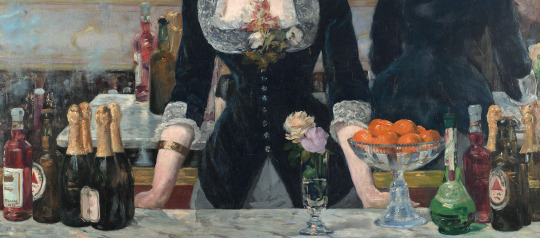
Liqueurs
Also known as cordials.
Distilled spirits that feature flavorings such as fruits, herbs, and spices.
Heavy, sweet, and complexly flavored drinks.
These sweet alcoholic beverages are used to make cocktails, or can be served alone as aperitifs or digestifs.
Making Liqueurs
Involves adding fruits, sugar, cream, spices, herbs, nuts, and flavorings to a liquor base at a distillery.
The sweetness of liqueurs is their most common feature.
Although, they can range widely in sugar content.
Popular types of liqueurs: orange liqueurs, herbal liqueurs, and coffee liqueurs.
Liqueur vs. Liquor
Both are drinks with high alcohol content and similar-sounding names.
However, there are essential differences between these two categories:
Fermentation: Liquor—also known as hard alcohol, spirits, or distilled spirits—is a category of alcoholic beverages that ferment and undergo distillation. In the distillation process, heat and condensation increase the alcohol content, and a significant portion of the water boils off, concentrating the alcohol and particular compounds. Liquors usually starting with a grain base (distillers occasionally use fruits). The six main categories are whiskey, brandy, rum, vodka, gin, and tequila.
Flavorings: Most liqueurs begin with liquor as a base; then, distillers add herbs, spices, and other flavorings. Bartenders can serve liqueurs as-is or add them in small amounts to a liquor base to form mixed drinks.
Sugar: The main difference between liquor and liqueur is sweetness. Liqueurs are intensely flavored with the most predominant note usually being sweetness. Flavoring herbs and oils and added sugar provide flavor and texture.
Alcohol content: Both liqueurs and liquors have a range of alcohol content. Most liquor is in the 40 to 55 percent range of Alcohol by Volume (ABV), or 80 to 110 proof. Liqueurs typically contain more ingredients, so the alcohol content is generally lower, from 15 to 30 percent ABV or 30 to 60 proof.
15 Popular Types of Liqueurs
There is a wide range of liqueurs, from cream-based cordials to proprietary recipes.
Amaretto: An Italian liqueur made from apricot kernels, which give the liquor a distinctly bitter almond flavor. Its name comes from amaro, the Italian word for “bitter.” Sweeter notes of brown sugar temper the bitterness of the apricot pits. It contains 21 to 28% ABV and can be sipped alone or added to cocktails.
Amaro: A broad category of regional Italian bitters. Made from either a neutral spirit or brandy, this bitter liqueur is a staple in the Italian lifestyle. A curated blend of botanical ingredients—typically an inherited recipe that includes herbs, spices, and flowers, as well as barks and roots like gentian root, cinchona, and wormwood—gives each variety of amaro its unique flavor. Campari, Cynar, Fernet Branca, and Aperol are popular amaro liqueur brands.
Anise liqueurs: Anice, the primary flavoring agent in black licorice, is a popular ingredient in alcoholic drinks in many countries and cultures: Ouzo in Greece, Sambuca and Galliano in Italy, Pernod Absinthe in France, and Raki in Turkey, among others.
Chambord: A popular brand of raspberry-flavored liqueur. The ingredients are red and black raspberries, honey, vanilla, and cognac. Chambord is great for making Raspberry Mojitos and Raspberry Margaritas.
Cream liqueurs: Thick, sweet liqueurs made with the addition of milk or a milk substitute, along with sweetener, to provide a creamy sweetness to the drink. Baileys Irish Cream liqueur and Amarula are two examples of cream liqueurs.
Creme liqueurs: Creme liqueurs are thick, sweet, syrup-like beverages. Unlike cream liqueurs, creme liqueurs do not contain dairy. Instead, added sugar provides a thick consistency. Crème de cassis (made from blackcurrants), crème de cacao, (a chocolate liqueur) and crème de menthe are different flavors of this category.
Coffee liqueurs: These liqueurs contain caffeine, and the predominant flavor is coffee. Coffee liqueurs, such as Kahlúa from Mexico or Irish Sheridan, are generally served with cream and sugar.
Elderflower liqueurs: These herbal liqueurs provide a light, floral note to cocktail recipes. St. Germain is a popular brand of elderflower liqueur.
Limoncello: A liqueur flavored with lemon peel. Limoncello is strong, sweet, and bright yellow.
Medicinal: Some liqueurs, such as Chartreuse and Benedictine, were initially used for medicinal purposes. These liqueurs tend to be floral and highly complex, with an ingredient list that remains secretive.
Orange liqueurs: These liqueurs feature predominant orange flavors, and are broadly known under the labels curaçao or Triple Sec. Popular brands include Cointreau and Grand Marnier.
Schnapps: Some varieties of schnapps do not classify as liqueurs, but those with added sweetness and flavoring agents, such as peach schnapps and peppermint schnapps, are liqueurs.
Drambuie: This Scottish liqueur has a base spirit of Scotch whiskey and a proprietary blend of herbs and spices.
Frangelico: Italian liqueur flavored with roasted hazelnuts; comes in a uniquely shaped bottle, modeled after a Christian monk, complete with a rope belt.
Strega: Italian herbal liqueur that gets its name from the Italian word for witch. The distinctive yellow color comes from saffron, imparting flavor to the liqueur.
Source ⚜ More: Writing Notes & References ⚜ Cocktails ⚜ Food History Wine-tasting ⚜ Drunkenness ⚜ Drinking ⚜ Literary & Hollywood Cocktails
#liqueur#writing notes#writing reference#food#writeblr#spilled ink#writers on tumblr#writing prompt#literature#poetry#poets on tumblr#creative writing#fiction#dark academia#light academia#studyblr#writing resources#edouard manet
129 notes
·
View notes
Text

Young woman with a pink shoe (1868) by Edouard Manet
Join Art History Academy for more art
#art#art history#artwork#culture#history#painting#vintage#museums#impressionism#curators#edouard manet#art history academy
83 notes
·
View notes
Text


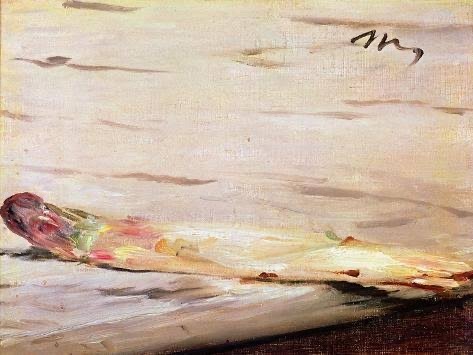
"a bundle of asparagus," edouard manet • the hare with amber eyes, edmund de waal • "a sprig of asparagus," edouard manet
751 notes
·
View notes
Text
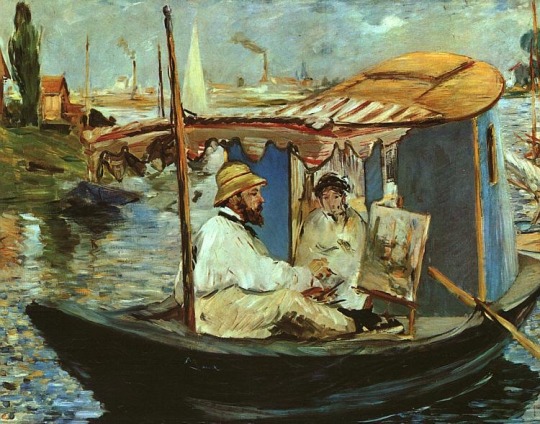
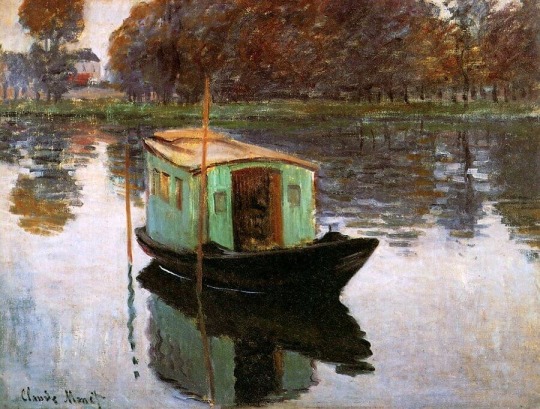
Edouard Manet, Monet in his Studio Boat, 1874
Claude Monet, The Studio Boat, 1874
#edouard manet#claude monet#french artist#french art#french painter#french painting#artist studio#boats#small boats#art on tumblr#impressionist#impressionism#impressionist painter#aesthetic#beauty#modern art#art history#aesthetictumblr#tumblraesthetic#tumblrpic#tumblrpictures#tumblr art#tumblrstyle
564 notes
·
View notes
Text

Édouard Manet
#édouard manet#edouard manet#manet#art#artwork#fine art#fineart#painting#art history#history of art#women in art
442 notes
·
View notes
Text
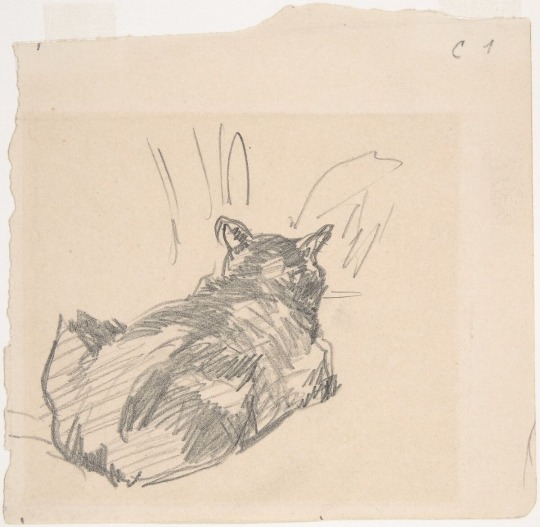
A Cat Resting on All Fours, Seen from Behind. Edouard Manet, 1861. Graphite on paper.
#usually the objective on this blog is critical analysis but the truest function of sketches of cats is just for all of us across time and#culture to go Awwwww Look At Him!#cat#cats#drawing#art history#edouard manet
655 notes
·
View notes
Text

Repose (Le Repos)
Artist: Édouard Manet (French, 1832-1883)
Date: c. 1871
Medium: Oil on canvas
Collection: Rhode Island School of Design Museum (RISD), Providence, RI, United States
Description
Edouard Manet was a leader in the development of a new pictorial language, and Repose demonstrates elements of his radical style, including dominant contrasts of light and dark tones; broad, tactile paint-handling; and a sense of shallow, compressed space. This representation of the artist Berthe Morisot shocked some viewers, who criticized her casual pose, her informal dress, and her availability as a model. Her gaze suggests reverie, in contrast to the raucous depiction of a pearl diver pursued by a dragon in the Japanese woodblock print above her head. Manet described his painting as a study in physical and psychological repose - “not at all in the character of a portrait.”
#painting#genre art#repose#leisure#french culture#french art#woman#brown sofa#white dress#interior#armchair#artwork#oil on canvas#fine art#french painter#berthe morisot#edouard manet#oil painting#19th century painting#european art#rhode island school of design museum
47 notes
·
View notes









